
Culture
11:17, 18-Aug-2017
Documentary on Japan's 'poison gas island' reveals war crimes
CGTN
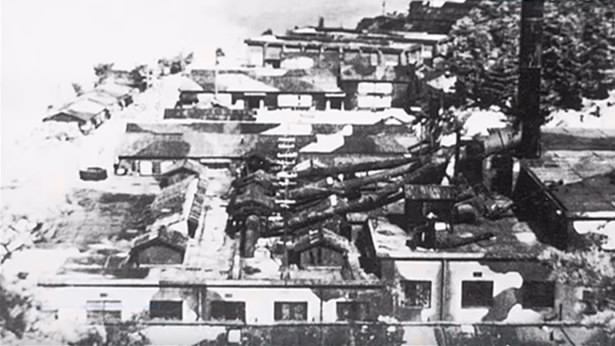
A documentary released recently about Okunoshima, an island where poison gas used to be manufactured for Japan's invasive war against China, has attracted a great deal of attention.
The documentary broadcast by Tokyo Broadcasting System (TBS), together with another one about Japanese Unit 731 released earlier by public broadcaster NHK, revealed the irrefutable historical truth about Japan's war crimes, and prompted heated discussions among Japanese society.
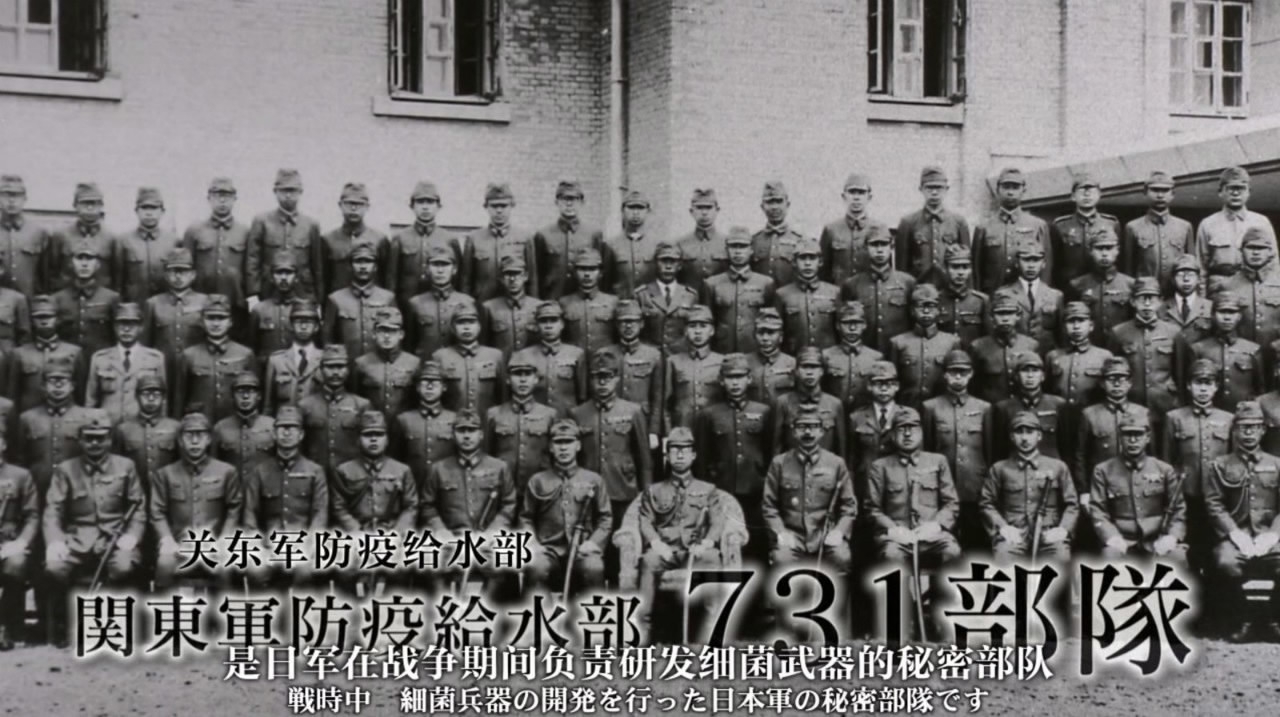
Screenshot of the documentary shows Japanese Unit 731. /Photo from People's Daily
Screenshot of the documentary shows Japanese Unit 731. /Photo from People's Daily
Okunoshima is a small island located in the Seto Inland Sea of Japan in Hiroshima prefecture. The island served as a poison gas factory for much of the chemical warfare that was carried out by the Imperial Japanese Army in China during World War II.
The documentary features Haruka Ayase, a 32-year-old popular idol in Japan, visiting Okunoshima island, interviewing 91-year-old Yasuma Fujimoto and others about the past of the island.
In the 1940s, Yasuma Fujimoto was involved in the manufacturing of poison gas at a plant on the island and the gas was eventually used, among other heinous acts of aggression, against China.
"This island now appears green. But it used to look yellow," said Fujimoto, adding that trees could not grow there due to the acid in the poison gas.
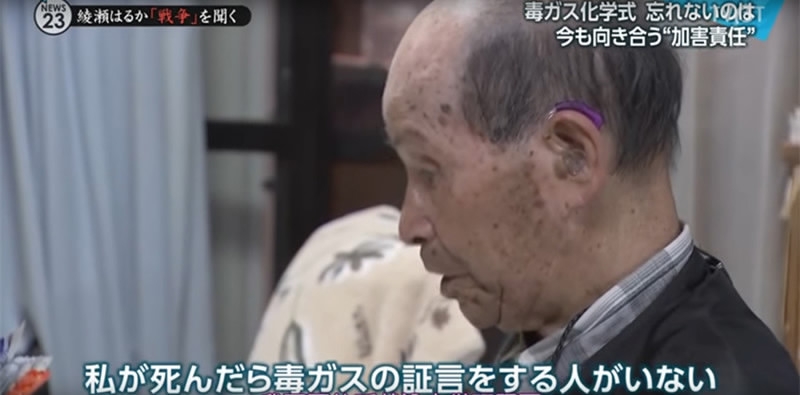
Screenshot of the documentary shows Yasuma Fujimoto. /Photo from People's Daily
Screenshot of the documentary shows Yasuma Fujimoto. /Photo from People's Daily
Back then, 6,700 people were working on the island and manufacturing poison gas around the clock. Fujimoto could still remember the chemical equation for the poison gas Lewisite to be manufactured.
"The poison gas was manufactured to secure Japan a victory in its invasive war against China," said Fujimoto.
"I will never forget this chemical equation. I went to learn these things to earn a living, but I ended up making poison gas to kill the Chinese people. (I'm) a criminal," he added.
Numerous Chinese civilians were killed by the chemical weapons used by the invading Japanese army. One such example was a Japanese gas attack at an underpass in Beituan Village, Hebei Province in China in 1942. Some 1,000 villagers were killed in that attack.
But after the war, as the Japanese government was eager to cover up the atrocities, evidence was destroyed, so was the poison gas factory on the Okunoshima island.
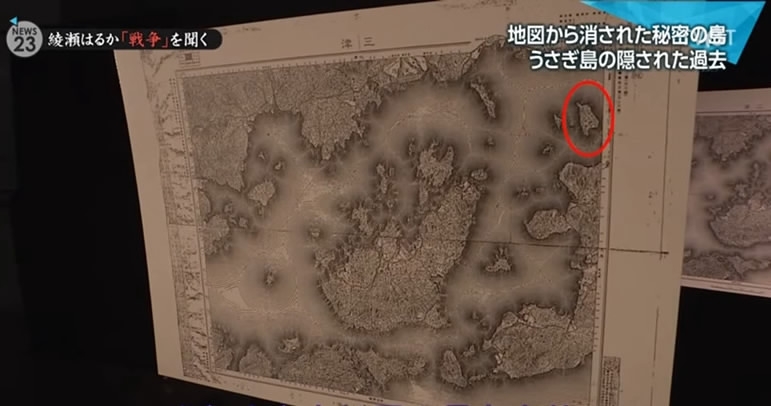
Screenshot of the documentary shows Okunoshimaexists in the original map. /Photo from People's Daily
Screenshot of the documentary shows Okunoshimaexists in the original map. /Photo from People's Daily
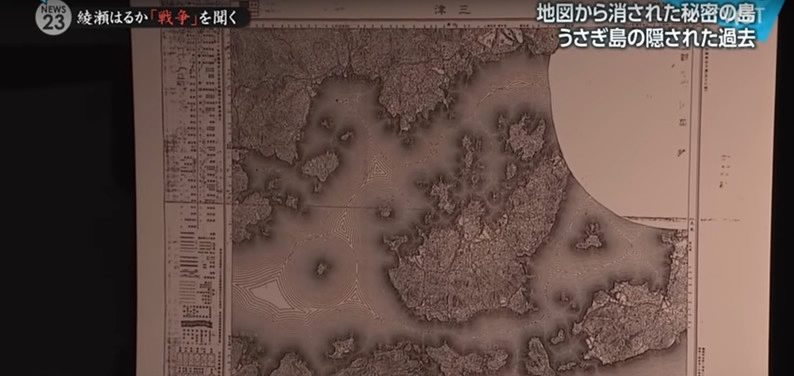
Screenshot of the documentary shows Okunoshima disappear in the map after 1938. /Photo from People's Daily
Screenshot of the documentary shows Okunoshima disappear in the map after 1938. /Photo from People's Daily
Currently, the island has become a tourist spot with more than 700 wild rabbits living there, and is therefore also called Rabbit Island.
The past crimes seem to only exist in the memory of a handful of witnesses who are still alive, such as Fujimoto.
"I made poison gas which killed Chinese people. This is a fact that can never be denied or distorted," said Fujimoto.
History should never be forgotten
Just like the documentary about the atrocities of Japanese Unit 731, the TBS documentary has also triggered heated discussions in Japanese society. Many viewers said they were shocked and felt that this part of history should never be forgotten.
Japanese writer Masahiro Yamazaki said in a post online that the documentaries released recently by the media choose to face Japan's dark history squarely in order for the nation to have a bright new future, but there are still some people who are plagued by militarist ideals and turn a blind eye to the truth.
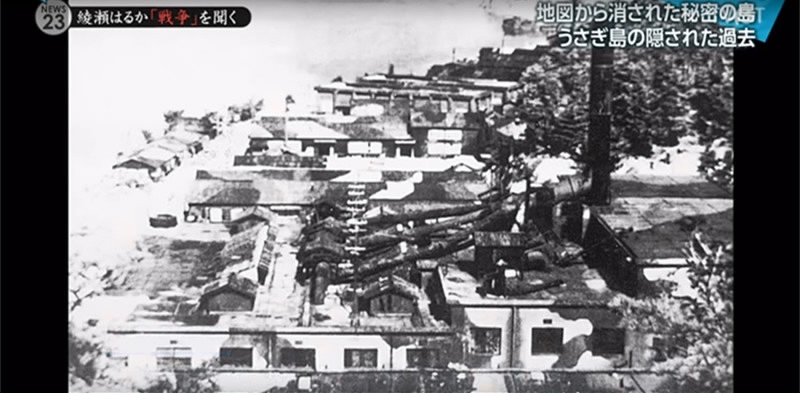
Screenshot of the documentary shows Okunoshima, Hiroshima prefecture, Japan. /Photo from People's Daily
Screenshot of the documentary shows Okunoshima, Hiroshima prefecture, Japan. /Photo from People's Daily
Duan Yuezhong, an overseas Chinese resident in Japan, told Xinhua that the documentaries released recently about Japan's war crimes appeal to the conscience of Japanese citizens and prompt them to reflect on the war history.
He also pointed out that broadcasting these documentaries should not mean the end of reflection, but rather the beginning of it; they should serve as an inspiration for digging out more truth and reflecting on more, if not all, historical facts.
Ayase, a famous Japanese actress, said for her part, at the end of the documentary that when she was listening to Fujimoto, she once again felt the terror of war, and the preciousness of peace.
"I hope more people could hear the story of Mr. Fujimoto," she said.
Source(s): Xinhua News Agency

SITEMAP
Copyright © 2018 CGTN. Beijing ICP prepared NO.16065310-3
Copyright © 2018 CGTN. Beijing ICP prepared NO.16065310-3